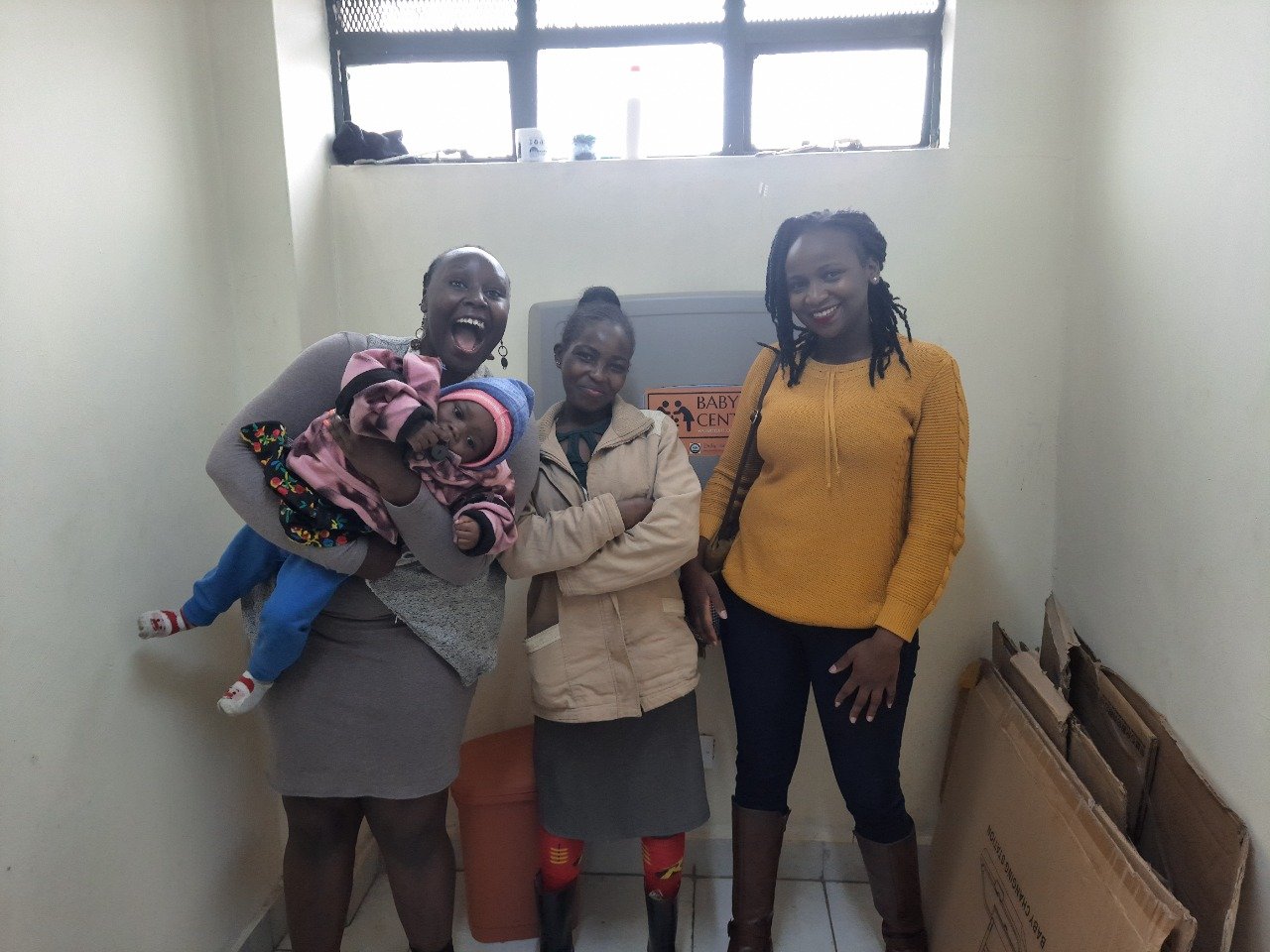Interviewees: Peninah Ndegwa
Interviewers: Giulia Gualtieri, Cynthia Wamkota and Rose Munene
October 2021
Wow Mom
Peninah Ndegwa
I'm Peninah Ndegwa, the founder and managing director of Wow Mom Kenya, a social enterprise that advocates for children-friendly cities by bringing to attention policies and plans that plague children in cities. At Wow Mom, we also work with parents and caregivers to equip them with parenting skills including nutrition, child safety and psychosocial support that make parenting easier and better. Wow Mom is an organization focused on children and caregivers.
What is Wow Mom? and how did it start?
Wow Mom started as a blog to express my thoughts or keep the things I thought were worth sharing in my parental journey. I felt so green in my first year of parenting, and I needed to document those thoughts and feelings. This is why I created a website and started posting blogs. But then, as the blog grew, I decided to use my knowledge and experience as an urban planner too. In the beginning, the organization's focus on children wasn't entirely thought through. For me, it was more of a mummy blog; that's why I called it Wow Mom, but then as it was evolving, we shifted our mission to what it is right now.
Being an expert in the transportation planning field allowed me to experience and experiment with mobility for mothers and caregivers. Therefore, we decided to study cities from the lens of children and to see the existing inequalities. That's how, bit by bit, we started shifting the organization's strategy towards children-friendly cities. What pushed me to take this direction was the realization of missing places for my child to play. I needed her to travel comfortably and independently, and I wanted her to enjoy the city that she's growing up in. So I dedicated myself to contribute to this cause, aiming for a positive change.
What project are you most proud of?
The project I am the most committed to has been also inspired by my personal experience. One day, I was testing the comfort of travelling with a toddler in Matatu (Kenyan public transport system). Along the way, my daughter soiled her diapers and I was stranded to figure out a private, clean and dignifying location where I could change her. The only location I knew had a baby changing station was CJ restaurant, located along Koinange Street in Nairobi CBD. I walked for approximately 1km with a fussy baby, bought coffee that I didn't need to just take advantage of that time to change my baby. That's when it dawned on me, what do average women, who cannot afford $2 to buy coffee do when the need to change diapers arise?
Guided by necessity and curiosity, I decided to start digging into this challenge through research. Coincidentally in that period, I was working on the transport feasibility plan in one of the key towns in Kenya. While working on the new bus Park, I proposed the installation of baby changing units in the toilets in the new bus park, starting by planning changing stations. I remember the minister, at that time, could not understand what a baby changing station was. As also many other people do not know why such a facility is necessary.
Therefore, we started doing a very detailed feasibility study. We mapped out all the public toilets in Nairobi, analyzing their conditions and how friendly the toilets are to women,
caregivers and children. And of course, we couldn't find any baby changing stations in the city. As a second step, we started a campaign and applied for grants to help us implement the idea. Luckily, we started a collaboration with the Duke-UNICEF Accelerator Program while keeping a participatory approach. Within the design process, we involved the direct users of the changing stations, caregivers and parents, inviting them to share their opinions, their thoughts, and their challenges. Recently, we are planning to launch some of the baby changing stations on the next World Toilet Day on 19th November 2021.
“There are no standards guiding the implementation of baby changing stations in Kenya. Not yet!”
Would you say your work has more of a bottom-up or a top-down approach?
I think both, as we collaborate with other projects with very different stakeholders. We work directly with caregivers (parents with children below the age of 6 years old) through our planning processes and training workshops on nutrition and child safety. In parallel to the campaign and implementation of baby changing stations, we also work with policymakers to impact higher levels. The breastfeeding mothers’ Bill 2019 is the only act in this country that slightly talks about baby changing stations. But when we were doing our feasibility study, we noted that there are no standards guiding the implementation of baby changing stations in Kenya. It's a loophole where people designing and constructing buildings will not feel obliged to provide such facilities. So, we have been committing a lot to work with the national government and county government to ensure that the policy can accommodate children.
We want to thank Peninah for her passion and activist dedication to promote more inclusive and just cities and create more child-friendly environments in Kenya.
Thank you for sharing YOUR STORY WITH THE HUASIPICHANGA COMMUNITY!





